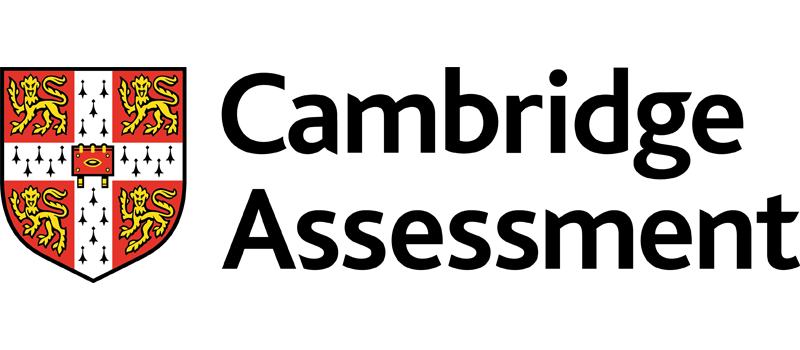
Managing Stress and Emotions at Work
Course ID: 2510060101279ESH
Course Dates : 06/10/25 Course Duration : 5 Studying Day/s Course Location: London, UK
Language: Bilingual
Course Category: Professional and CPD Training Programs
Course Subcategories: Operations and Process Excellence
Course Certified By: ESHub CPD & LondonUni - Executive Management Training
* Professional Training and CPD Programs
Leading to:
Executive Diploma Certificate
Leading to:
Executive Mini Masters Certificate
Leading to
Executive Masters Certificate
Certification Will Be Issued From :
From London, United Kingdom
Course Fees: £5,120.30
Vat Not Included in the price. VAT may vary depending on the country where the course or workshop is held.
Click to Pay
Date has passed please contact us Sales@e-s-hub.com
Course Information
Introduction
The modern workplace is a dynamic environment where individuals are constantly navigating deadlines, interpersonal relationships, and organizational expectations. In such settings, stress and emotional challenges can emerge as significant barriers to productivity, collaboration, and overall well-being. This course, Managing Stress and Emotions at Work , addresses these critical issues by equipping participants with evidence-based strategies to regulate emotions, mitigate stress, and foster resilience. The relevance of this topic is underscored by the increasing emphasis on mental health in professional environments, as organizations strive to create supportive cultures that enhance employee satisfaction and retention.
Stress in the workplace often arises from factors such as workload, role ambiguity, or lack of control over tasks. Emotional intelligence (EI), a concept pioneered by Daniel Goleman, has emerged as a cornerstone for understanding and managing these dynamics. However, despite its theoretical prominence, many professionals struggle to translate EI into actionable practices. This course bridges that gap by providing tools that align with established frameworks, including Goleman’s model of EI and Lazarus’s transactional model of stress. Participants will explore how these theories apply in real-world scenarios, enabling them to respond effectively to workplace challenges.
Consider the case of a multinational corporation that implemented a stress management program after observing declining engagement scores among employees. By incorporating mindfulness techniques and fostering open communication, the company not only improved morale but also saw a 15% increase in productivity within six months. Such examples highlight the tangible benefits of addressing stress and emotions systematically. For individuals, mastering these skills enhances job satisfaction and career longevity. For organizations, it translates into reduced absenteeism, higher performance, and a more harmonious work culture.
One of the key challenges in this domain is the pervasive stigma surrounding mental health discussions in professional settings. Many employees hesitate to seek help, fearing judgment or repercussions. This course aims to dismantle such barriers by normalizing conversations about stress and emotions while offering practical solutions. Participants will learn to recognize early warning signs of burnout, leverage coping mechanisms, and create action plans tailored to their unique circumstances.
The course also addresses gaps in leadership training, where managers often lack the tools to support their teams emotionally. A study by Gallup revealed that employees who feel supported by their supervisors are three times more likely to report high levels of engagement. By integrating lessons on empathy, active listening, and conflict resolution, this program prepares leaders to foster psychologically safe environments. Additionally, participants will examine industry trends, such as remote work and digital communication, which have introduced new dimensions to stress management.
Ultimately, the ability to manage stress and emotions is not merely a personal asset but a competitive advantage in today’s workforce. Professionals who cultivate emotional resilience are better equipped to navigate uncertainty, adapt to change, and inspire others. Through a blend of theory, practice, and reflection, this course empowers participants to transform challenges into opportunities for growth, benefiting both themselves and their organizations.
Objectives
By attending this course, participants will be able to:
Analyze the physiological and psychological impacts of workplace stress using established models like Lazarus’s transactional theory.
Evaluate individual and team-based emotional responses to identify triggers and implement targeted interventions.
Design personalized stress management plans incorporating mindfulness, time management, and relaxation techniques.
Apply principles of emotional intelligence to enhance interpersonal communication and resolve conflicts constructively.
Implement leadership strategies that promote psychological safety and foster a supportive work environment.
Assess organizational policies and practices to recommend improvements aligned with mental health best practices.
Synthesize insights from case studies to develop innovative solutions for emerging workplace challenges.
Who Should Attend?
This course is ideal for:
Human Resources professionals seeking to enhance employee well-being initiatives; team leaders and managers aiming to improve team dynamics and morale; consultants specializing in organizational development; educators facilitating workplace training programs; healthcare providers focusing on occupational health; and entrepreneurs managing small teams. These groups will find value in gaining practical tools to address stress and emotions effectively. While prior knowledge of psychology or HR is beneficial, the course is designed to accommodate beginners and intermediate learners alike, ensuring accessibility without compromising depth.
Training Method
• Pre-assessment
• Live group instruction
• Use of real-world examples, case studies and exercises
• Interactive participation and discussion
• Power point presentation, LCD and flip chart
• Group activities and tests
• Each participant receives a 7” Tablet containing a copy of the presentation, slides and handouts
• Post-assessment
Program Support
This program is supported by:
* Interactive discussions
* Role-play
* Case studies and highlight the techniques available to the participants.
Daily Agenda
Daily Schedule (Monday to Friday)
- 09:00 AM – 10:30 AM Technical Session 1
- 10:30 AM – 12:00 PM Technical Session 2
- 12:00 PM – 01:00 PM Technical Session 3
- 01:00 PM – 02:00 PM Lunch Break (If Applicable)
- Participants are expected to engage in guided self-study, reading, or personal reflection on the day’s content. This contributes toward the CPD accreditation and deepens conceptual understanding.
- 02:00 PM – 04:00 PM Self-Study & Reflection
Please Note:
- All training sessions are conducted from Monday to Friday, following the standard working week observed in the United Kingdom and European Union. Saturday and Sunday are official weekends and are not counted as part of the course duration.
- Coffee and refreshments are available on a floating basis throughout the morning. Participants may help themselves at their convenience to ensure an uninterrupted learning experience Provided if applicable and subject to course delivery arrangements.
- Lunch Provided if applicable and subject to course delivery arrangements.
Course Outlines
Foundations of Stress and Emotion Management
Understanding the science of stress: Biological and psychological perspectives
Introducing emotional intelligence: Key components and applications
Identifying common workplace stressors and their effects
Exploring the role of personality traits in stress susceptibility
Day 2:
Tools for Self-Regulation
Practicing mindfulness and meditation techniques
Building resilience through cognitive reframing
Time management strategies to reduce overwhelm
Developing healthy habits for physical and mental wellness
Day 3:
Enhancing Interpersonal Skills
Mastering active listening and empathetic communication
Navigating difficult conversations with confidence
Conflict resolution frameworks for diverse contexts
Fostering trust and rapport in professional relationships
Day 4:
Leadership and Organizational Strategies
Creating psychologically safe work environments
Promoting work-life balance through policy design
Encouraging open dialogue around mental health
Leveraging technology to support remote worker well-being
Day 5:
Application and Integration
Case study analysis: Lessons from successful implementations
Designing actionable stress management plans
Evaluating organizational readiness for change
Reflective exercises: Personal commitments to growth



















































